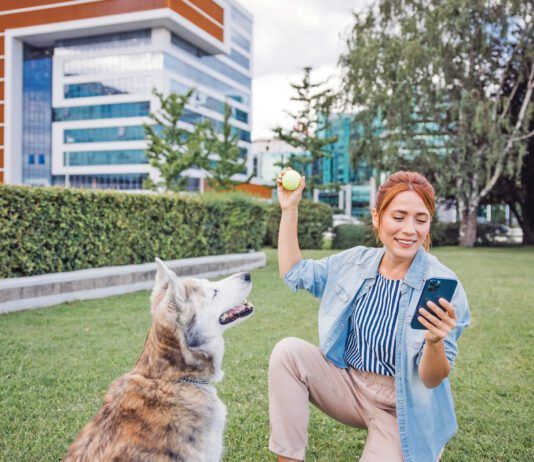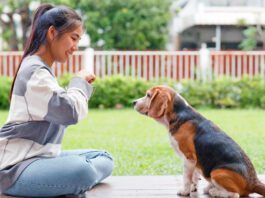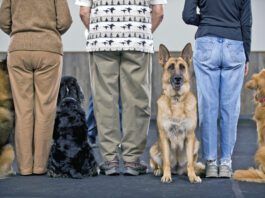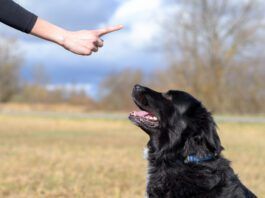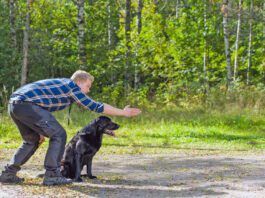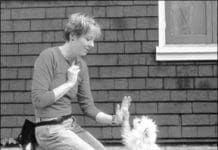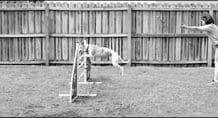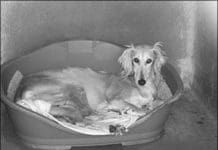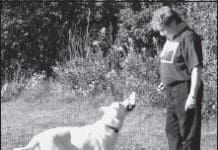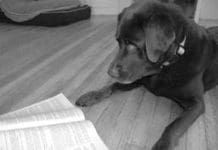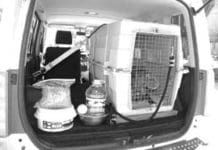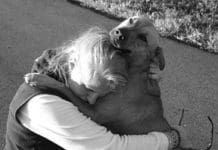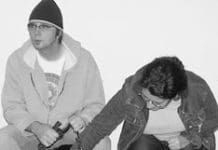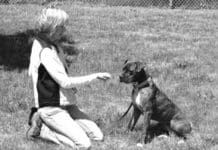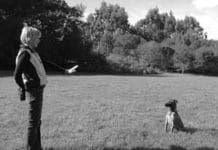Utilizing Target Training for Better Leash Walking
Does your dog know how to target? If not, the two of you may be missing out on one of the most versatile behaviors to come along since the rise in popularity of the positive dog training philosophy.
Shouts and Whispers
You presented (“Don’t Whisper,” December 2006) some of the same observations I have made in viewing “The Dog Whisperer,” but I believe that you failed to give him credit for two key points.
Agility Games for Managing Dog Aggression
Owning an aggressive, fearful, or other type of special needs" dog is stressful. When your dog overreacts to other dogs or just the stimulus of being out in the world by barking
Dog Training Down Under
Just a few days ago, my husband, Paul, and I were strolling Darling Harbour in Sydney, Australia, hand in hand. I had been offered a once-in-a-lifetime opportunity to be the main speaker at the annual conference of the Australia APDT (Association of Pet Dog Trainers), expenses paid!
Teaching a Dog to Play Fetch
Last week a trainer friend stopped by to visit with her three dogs: Star, Kaiya, and Lhotse. As we were chatting, Laura confessed to me that she thought she'd ruined Star's "fetch" with the clicker. "She had a great retrieve," Laura said, "until I started clicking her for it. Now she just drops it as soon as I click. I stopped working on it because I knew I was messing it up." I chuckled to myself. I knew this would be a fun - and easy - training fix.
Teaching Your Dog to Read
Don't laugh. If Bonnie Bergin, EdD, has her way, dogs all over the world will soon be reading maybe not books and articles, but individual words or sets of words strung together. Now president of the Bonnie Bergin Assistance Dog Institute, the world's only academic college that awards associate and master's degrees in dog studies, Dr. Bergin originated the service dog concept when she founded Canine Companions for Independence more than 30 years ago.
Driving Safely with Your Dog
When I'm driving on the road and see a dog in someone else's car, it makes me smile. I love it when people care enough about their dogs to chauffeur them around town. I love it even more when the dog is in a crate or seat belted in place. My smile quickly vanishes, however, if the dog has her head stuck out the window, is sitting in the driver's lap, darting back and forth across the seats, or worse, riding loose in the back of an open pickup truck. And the ultimate crime leaving a dog in a hot car motivates me to grab my cell phone and call out the animal cops. As much as we love our dogs and want them with us all the time, we have an incontrovertible obligation to transport them safely, for their own welfare as well as ours, and that of other drivers on the roads. All dogs, large and small, should learn to ride politely in their cars. There's a long list of safety hazards concomitant with having an unrestrained obstreperous canine in a moving vehicle.
Consistent Dog Training With Regards to Men and Women
In general, men tend to be more physical with their dogs, and more assertive, enjoying rough-and-tumble wrestling games and expecting the dog to understand and obey. Women tend to be softer, more into cuddling than wrestling, and take more interest in teaching the dog to understand the complex world of primate (human) communication.
Dog Trainers Note How Men and Women May Train Differently
Men are from Mars. Women are from Venus. Dogs are from Neptune. A well-known trainer recently made a public comment about men’s inability to act silly with their dogs, to the detriment of their ability to use positive training methods effectively. Are we really three alien species, destined to live forever in a world of miscommunication and misinterpretation? Is one gender truly better suited to bridge the communication gap between the human and canine species?
Positive Methods for Obedience Training
How to teach your dog to look to you (literally!) for direction. Look is a combination behavior. It is more than the “Leave it” or “Off.” It is more than the ever-popular “watch me.” It involves the dog breaking eye contact with the arousing object, person, or animal (whatever triggers the dog’s manic behavior); turning his head away from that trigger; making eye contact with you; and holding that eye contact until you give a release signal.
Training a Dependable “Stay”
How to produce a completely dependable "stay" in your dog, no matter what the distraction. (Hint: It takes a lot of practice!) We were on our usual morning neighborhood walk. All of a sudden, three children on bikes sped past us on the sidewalk, racing each other on the way to school. The faster and older children raced around the corner, leaving the younger bicyclist in their dust.
Fun Dog Training Techniques Using Shaping!
it doesn't require the dog to figure out for herself what exactly it is that you want.üThis dog is learning to flick a light switch. At first


